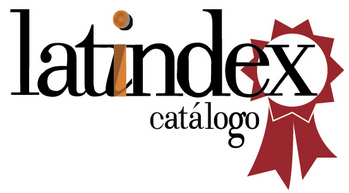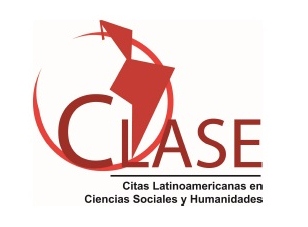¿Oponentes o colegas? Desacuerdo y adversarialidad en la teoría de la argumentación
Resumen
En este artículo sostengo que el vínculo entre argumentación y desacuerdo no es natural; además, argumento que concebir a este vínculo como uno natural ha tenido resultados perjudiciales para la teoría de la argumentación. Para respaldar esta afirmación, comienzo mostrando que el desacuerdo no es una condición necesaria para la argumentación y que la función de la argumentación no es resolver desacuerdos o reducir diferencias de opinión. A continuación, sostengo que el desacuerdo en la argumentación suele ser concebido desde un paradigma adversarial: como un conflicto de creencias (u otros estados mentales). Concluyo mostrando que, incluso al aproximarse a ella a partir del desacuerdo, no es necesario concebir a la argumentación de manera adversarial; en su lugar, propongo un cambio parcial de paradigma en la teoría de la argumentación: al dejar de concebir a las personas que argumentan como adversarias y concebirlas como colegas en una empresa colectiva y común se ofrece la oportunidad de mejora epistémica.Citas
Aberdein, A. (2016). “Arguments with losers”. Florida Philosophical Review, 16(1): 1-11.
Adams, N.P. (2018). “Uncivil disobedience: Political commitment and violence”. Res Publica, 24: 475-491.
Aikin, S. y Talisse R. (2014). Why We Argue (and How we Should): A Guide to Political Disagreement. New York: Routledge.
Aikin, S. (2011). “A defense of war and sport metaphors in argument”. Philosophy and Rhetoric, 44(3): 250-272.
Bailin, S. y Battersby, M. (2017). “DAMed if you do; DAMed if you don’t: Cohen’s ‘Missed Opportunities’”. En P. Bondy y L. Benacquista (eds.), Argumentation, Objectivity, and Bias: Proceedings of the 11th International Conference of the Ontario Society for the Study of Argumentation, OSSA Conference Archive. https://scholar.uwindsor.ca/ossaarchive/.
Burrow, S. (2010). “Verbal sparring and apologetic points: Politeness in gendered argumentation contexts”. Informal Logic, 30(3): 235-262.
Casey, J. (2020). “Adversariality and argumentation”. Informal Logic, 40(1): 77-108.
Christensen, D. “Epistemology of disagreement: The good news”. Philosophical Review, 116: 187-217.
Eemeren, F.H. van (2010). Strategic Maneuvering in Argumentative Discourse: Extending the Pragma-Dialectical Theory of Argumentation. Amsterdam: John Benjamins.
Eemeren, F.H. van y Grootendorst, R. (1992). Argumentation, Communication, and Fallacies: A Pragma-Dialectical Perspective. Hillsdale: Lawrence Erlbaum Associates.
Feldman, R. (2005). “Deep disagreement, rational resolutions, and critical thinking”. Informal Logic, 25(1): 13-23.
Feldman, R.S. (2009). The Liar in Your Life: The Way to Truthful Relationships. New York: Twelve.
Feldman, R.S., Forrest, J.A., y Happ, B.R. (2002). “Self-Presentation and Verbal Deception: Do Self-Presenters Lie More?”. Basic and Applied Social Psychology, 24(2): 163-170.
Fogelin, R. (1985). “The logic of deep disagreements”. Informal Logic, 7(1): 3-11.
Gensollen, M. (2012). “Virtudes argumentativas: hacia una cultura de la paz”. Euphyía, 11(6): 115-131.
Gilbert, M. (1995). “What is an emotional argument? or why do argument theorists quarrel with their mates?” En F.H. van Eemeren, R. Grootendorst, J.A. Blair y C.A. Willard (coords.), Analysis and Evaluation: Proceedings of the Third ISSA Conference on Argumentation (pp. 3-12). Amsterdam: Sic Sat.
Gilbert, M. (1994). “Feminism, argumentation and coalescence”. Informal Logic, 16(2): 95-113.
Goodwin, J. (2007). “Argument has no function”. Informal Logic, 27(1): 69-90.
Goodwin, J. (1999). “Good argumentation without resolution”. En F.H. van Eemeren, R. Grootendorst, J.A. Blair, & Ch.A. Willard eds.), Proceedings of the Fourth International Conference of the International Society for the Study of Argumentation (pp. 255-259). Amsterdam: Sic Sat.
Govier, T. (1999). The Philosophy of Argument. Newport News: Vale Press.
Habermas, J. (1996). “Deliberative Politics: A Procedural Concept of Democracy”. En: Habermas, J. (1996), Between Facts and Norms: Contributions to a Discourse Theory of Law and Democracy (pp. 287-328), trad. de W. Rehg, Cambridge: MIT Press.
Harding, S. (1986). The Science Question in Feminism. Ithaca: Cornell University Press.
Hundleby, C. (2013). “Aggression, Politeness, and Abstract Adversaries”. Informal Logic, 33(2): 238-262.
Kraus, M. (2012). “Cultural diversity, cognitive breaks, and deep disagreement: Polemic argument”. En F.H. van Eemeren y B. Garssen (eds.), Topical Themes in Argumentation Theory: Twenty Exploratory Studies (pp. 91-107). Dordrecht: Springer.
Lakoff, G. (2004). Don’t Think of an Elephant! Know your Values and Frame the Debate: The Essential Guide for Progressives. Vermont: Chelsea Green Publishing.
Lakoff, G. y Johnson, M. (1980). Metaphors We Live By. Chicago: The University of Chicago Press.
Longino, H.E. (2002). The Fate of Knowledge. New Jersey: Princeton University Press.
Longino, H.E. (1990). Science as Social Knowledge: Values and Objectivity in Scientific Inquiry. New Jersey: Princeton University Press.
Lynch, M.P. (2019). Know-It-All Society: Truth and Arrogance in Political Culture. New York: Liverlight.
McIntyre, L. (2019). The Scientific Attitude: Defending Science from Denial, Fraud, and Pseudoscience. Cambridge: MIT Press.
Mercier, H. y Sperber, D. (2011). “Why do humans reason? Arguments for an argumentative theory”. Behavioral and Brain Sciences, 34: 57-111.
Mitova, V. (2011). “Introducción”. En M.M. Valdés y M.A. Fernández (comps.), Normas, virtudes y valores epistémicos. Ensayos de epistemología contemporánea (pp. 325-336). Ciudad de México: UNAM-IIF.
Morado, R. (2013). “Funciones básicas del discurso argumentativo”. Revista Iberoamericana de Argumentación, 6: 1-13.
Moulton, J. (1983). “A paradigm of philosophy: The Adversary Method”. En S. Harding y M.B. Hintikka (eds.), Discovering Reality: Feminist Perspectives on Epistemology, Metaphysics, Methodology, and Philosophy of Science (pp. 149-164). Dordrecht: Kluwer.
Oreskes, N. (2019). Why Trust Science? New Jersey: Princeton University Press.
Pereda, C. (2018). “La argumentación en cuanto práctica”. En F. Leal, C. Ramíres y V. Favila (eds.), Introducción a la teoría de la argumentación (pp. 69-88). Guadalajara: Editorial Universitaria.
Pereda, C. (1998). “Argumentación y violencia”. En A. Sánchez Vázquez (ed.), El mundo de la violencia (pp. 327-339). Ciudad de México: UNAM-FCE.
Pereda, C. (1994). Vértigos argumentales: una ética de la disputa. Barcelona: Anthropos/UAM-Iztapalapa.
Pickering, A. (1984). Constructing Quarks: A Sociological History of Particle Physics. Chicago: The University of Chicago Press.
Plantin, C. (1990). Essais sur l’argumentation. Introduction linguistique à l'étude de la parole argumentative. Paris: Éditions Kimé.
Rooney, P. (2010). “Philosophy, adversarial argumentation, and embattled reason”. Informal Logic, 30(3): 203-234.
Siegel, H. (2019). “Hinges, disagreements, and arguments: (Rationally) believing hinge propositions and arguing across deep disagreements”. Topoi. https://doi.org/10.1007/s11245-018-9625-6.
Siegel, H. (2013). “Argumentation and the epistemology of disagreement”. OSSA Conference Archive, 157.
Sinnott-Armstrong, W. (2018). Think Again: How to Reason and Argue. New York: Oxford University Press.
Stevens, K. y Cohen, D. (2018). “The attraction of the ideal has no traction on the real: on adversariality and roles in argument”. Argumentation and Advocacy. https://doi.org/10.1080/10511431.2018.1504584.
Walton, D. (1990). “What is reasoning? What is an argument?”. The Journal of Philosophy, 87(8): 399-419.
Warburton, N. (2000). Thinking from A to Z. New York: Routledge.
Una vez que un texto es aceptado para su publicación en Quadripartita Ratio, sus autores deben firmar dos documentos de carácter legal: una Licencia de uso y una Declaración de autoría.
Con la Licencia de uso, los autores autorizan la publicación de su obra y la difusión de ésta (integración en bases de datos, difusión en nuestras redes sociales, reediciones posibles, etc.). No obstante, se autoriza la descarga, reproducción y distribución de todos nuestros contenidos publicados, siempre que no se modifique el contenido y se indique su origen (nombre de la revista, volumen, número, páginas y dirección electrónica del documento).
Con la Declaración de autoría, los autores manifiestan que la obra es de su autoría, original e inédita.









